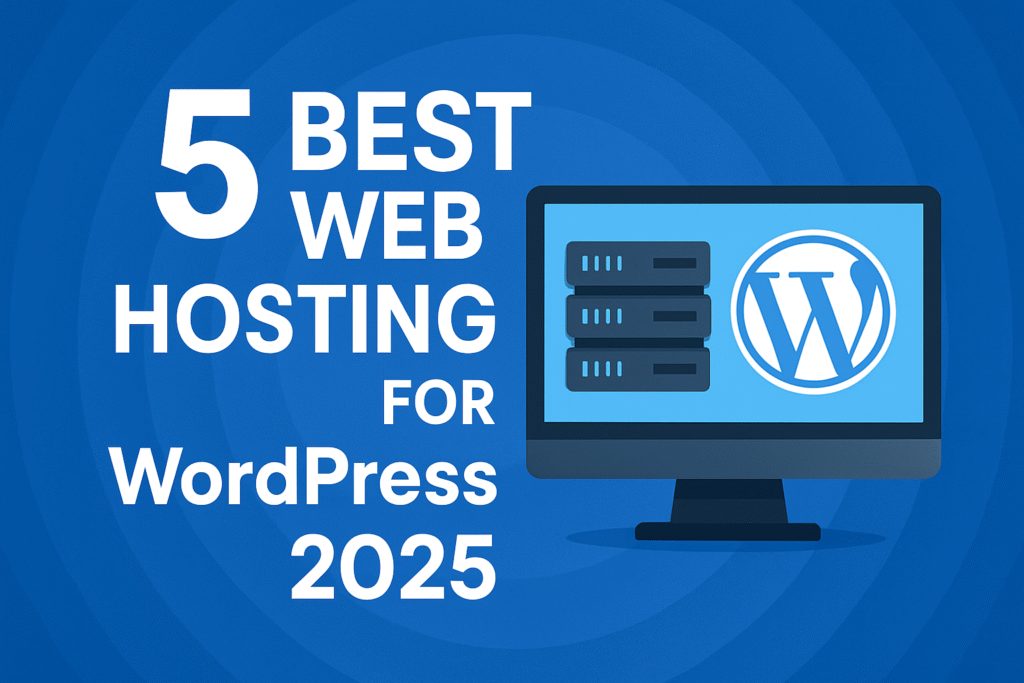Email Hosting: 5 Essential Benefits and Top Providers You Need to Know
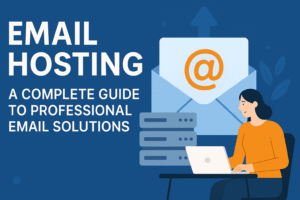
In today’s digital age, email hosting has become an essential part of managing online communication for businesses, entrepreneurs, and individuals. Whether you’re starting a new business, running an established company, or simply looking to maintain a professional online identity, having a custom email address linked to your domain is more important than ever. In this comprehensive guide, we will explore what email hosting is, its benefits, types, features, and the best providers to help you choose the right option for your needs.
What is Email Hosting?
Email hosting refers to the service that enables you to host your email accounts on a dedicated server or cloud service provider. Unlike free email services like Gmail or Yahoo, email hosting gives you more control over your email communications, security, and features. When you choose email hosting, you can create a custom email address with your domain name (e.g., contact@yourbusiness.com) that aligns with your brand and gives you more credibility.
For more detailed insights on email hosting, visit GoDaddy’s guide on email hosting to get a deeper understanding of its benefits.
Create an eCommerce Website with WordPress – Build a Profitable Online Store in 2025
Why Choose Email Hosting?

-
Professionalism and Branding
Having a custom email domain enhances your brand’s professionalism. With email hosting, businesses can create email addresses that reflect their brand identity, such as info@yourdomain.com or support@yourdomain.com. This builds trust and credibility, which is essential in today’s competitive market.For tips on how professional email addresses can improve your branding, check out this article by Business News Daily.
-
Security and Privacy
Free email services are often filled with ads, and they are also more prone to security threats like hacking or phishing attacks. With email hosting, your communication is far more secure. Advanced encryption methods, secure protocols, and antivirus filters ensure that your emails remain private and safe.Explore Email Security Best Practices for additional tips on protecting your email communication.
-
Storage and Organization
Email hosting services typically provide more storage than free email services. You won’t have to worry about running out of space for attachments, emails, or archives. Additionally, many providers offer better organizational tools, such as folder structures, labels, and tags, which allow you to manage your emails efficiently. -
Reliable and Scalable
Email hosting provides a higher level of reliability than free email services. Providers typically guarantee 99.9% uptime, ensuring your email is available whenever you need it. Moreover, as your business grows, email hosting can scale to accommodate more users, more storage, and additional features.
How Does Email Hosting Work?
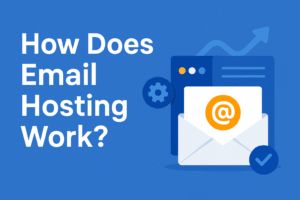
When you sign up for email hosting, you are essentially renting space on a server that handles the delivery, reception, and storage of your emails. Your emails are processed using the Mail Transfer Protocol (MTP) or the Simple Mail Transfer Protocol (SMTP) to ensure reliable email delivery and receipt.
To begin using email hosting, you’ll need to:
-
Choose a Domain Name
First, you must own a domain name for your business or personal brand. If you don’t have one, you’ll need to register it before proceeding. This domain name will be part of your email address, which is set up via email hosting. -
Set Up MX Records
Once you’ve purchased email hosting, you’ll need to configure your domain’s DNS settings. This includes setting up MX (Mail Exchange) records that direct your domain’s email traffic to your email hosting provider’s servers.For more on setting up MX records for email hosting, see this guide from Namecheap.
-
Create Email Accounts
After the configuration, you can create custom email accounts for your team (e.g., john@yourdomain.com, sarah@yourdomain.com). These accounts are accessible through a webmail interface, or you can set them up with an email client such as Microsoft Outlook or Apple Mail. -
Access and Manage Your Email
Most email hosting services offer an easy-to-use webmail interface where you can send, receive, and manage your email. You can also access your email via an email client on your computer or mobile device.
Free Website Hosting: What It Is and Why It Could Be the Right Choice for You
Types of Email Hosting
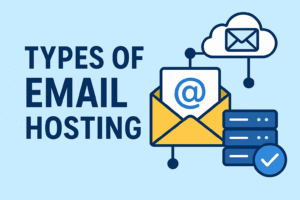
There are several types of email hosting available, each suited for different needs and budgets. Let’s take a look at the most popular options:
1. Shared Email Hosting
Shared email hosting is the most basic and cost-effective type of hosting. Your email account shares server resources with other users. While it’s a great choice for small businesses or personal use, performance can sometimes be impacted if the server is overloaded with other customers’ emails.
Advantages:
-
Low cost
-
Easy to set up and manage
-
Ideal for small businesses
For more information on shared hosting, visit SiteGround’s explanation on shared hosting.
Disadvantages:
-
Limited resources
-
Potential performance issues during peak usage times
2. Dedicated Email Hosting
Dedicated email hosting provides a server dedicated exclusively to your email needs. This option is suitable for businesses that need more control, higher performance, and security. Dedicated servers come with increased bandwidth, storage, and better reliability.
Advantages:
-
Full control over your server
-
No resource sharing
-
Better security
To better understand dedicated email hosting, see this detailed guide on dedicated hosting from Bluehost.
Disadvantages:
-
More expensive
-
Requires technical expertise for management
3. Cloud Email Hosting
Cloud email hosting uses cloud infrastructure to store and manage your emails. This type of hosting provides flexibility, scalability, and enhanced reliability. Cloud email hosting providers typically offer high uptime and disaster recovery capabilities.
Advantages:
-
Scalable and flexible
-
High reliability and uptime
-
Accessible from anywhere
Disadvantages:
-
May be more expensive than shared hosting
-
Dependent on internet connectivity
Key Features of Email Hosting

When choosing an email hosting provider, it’s important to look at the features they offer. The right features can make your email experience more efficient and secure. Here are some of the key features to consider:
1. Custom Domain Email Addresses
Having a professional email address is a must. Email hosting allows you to create custom email addresses with your domain name, such as contact@yourdomain.com or sales@yourdomain.com.
2. Security Features
Email hosting services offer various security features, such as:
-
Spam filtering: Automatically blocks spam and unwanted emails.
-
Encryption: Protects the contents of your emails, ensuring that they remain confidential.
-
Two-factor authentication (2FA): Adds an extra layer of security by requiring a second verification method when logging in.
Explore more about email security in this article from CSO Online.
5 Best Web Hosting for WordPress in 2025
Top Email Hosting Providers
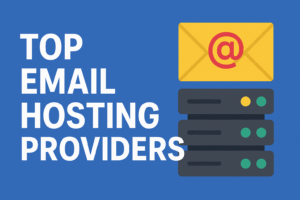
Here are some of the best email hosting providers that can help you get started with professional email communication:
1. Google Workspace
Google Workspace is one of the most popular email hosting providers, offering Gmail, Google Drive, and Google Docs, all integrated into one platform. It allows you to create custom email addresses with your domain and offers powerful collaboration tools.
For more details on Google Workspace, visit the Google Workspace page.
Best for: Businesses that need a full suite of productivity tools and secure email hosting.
2. Microsoft 365
Microsoft 365 offers Outlook for email hosting along with access to Microsoft Office tools such as Word, Excel, and OneDrive. It’s an excellent choice for businesses that need robust email hosting and productivity tools.
Explore Microsoft 365’s features here.
Best for: Businesses that prefer the Microsoft ecosystem and need comprehensive collaboration tools.
Conclusion
In conclusion, email hosting is a vital service for anyone looking to maintain professional and secure email communication. Whether you are a small business owner, a large corporation, or an individual looking to improve your online identity, email hosting offers numerous benefits, including custom domain email addresses, better security, and more reliable service than free providers.
By understanding the different types of email hosting, their features, and the key factors to consider, you can select the best provider for your needs. From cost-effective options like Zoho Mail to premium services like Google Workspace and Microsoft 365, there are plenty of choices to suit businesses of all sizes.

